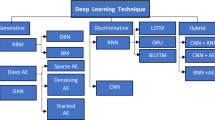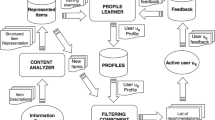Abstract
Recently, the Massive Open Online Course (MOOC) learning system has become a popular education platform, and the information overload issue within it is becoming much more serious, due to the increasing of online education needs. Consequently, the studies that focus on recommending learning resources (e.g., courses and knowledge concepts) have become a hot research topic. Moreover, as courses are composed of sets of knowledge concepts, directly recommending courses will ignore the students’ fine grained learning state. In this work, we focus on the Knowledge Concept Recommendation (KCR) task that aims at exploring the concepts that a student needs to master. Existing methods on KCR are mainly well designed graph convolutional models that pay more attention to exploring students’ preference similarity. However, most of these methods only have limited representation ability, as they mainly rely on a single type of nodes, and the diversified relationships among students and concepts are not fully explored. In light of this, we propose a Multi-aspect Heterogeneous Information Network (Multi-HIN) for KCR. Specifically, to consider the impact of multi-types of entities on preference learning, we first construct a Heterogeneous Information Network (HIN) to link concepts and multiple entities in a network. Then, to learn a more accurate node representation, we dynamically assign an aspect context to each node by viewing aspects as students’ interest dimensions. To learn items’ representations based on the current aspect, we further conduct the aspect selection process via the Gumbel–Softmax method. Finally, we use an extended Matrix Factorization (MF) method to make concept recommendations. We conduct extensive experiments on a real-world dataset to demonstrate the superiority of our proposed method.






Similar content being viewed by others
References
Abdi MH, Okeyo GO, Mwangi RW (2018) Matrix factorization techniques for context-aware collaborative filtering recommender systems: a survey. Comput Inf Sci 11(2):1–10
Chen H, Yin H, Wang W, Wang H, Nguyen QVH, Li X (2018) Pme: projected metric embedding on heterogeneous networks for link prediction. In: Proceedings of the 24th ACM SIGKDD international conference on knowledge discovery & data mining, KDD ’18. Association for Computing Machinery, New York, pp 1177–1186
Dong Y, Chawla NV, Swami A (2017) Metapath2vec: Scalable representation learning for heterogeneous networks. In: Proceedings of the 23rd ACM SIGKDD international conference on knowledge discovery and data mining, KDD ’17. Association for Computing Machinery, New York, pp 135–144
Epasto A, Perozzi B (2019) Is a single embedding enough? learning node representations that capture multiple social contexts. In: The world wide web conference, WWW ’19. Association for Computing Machinery, New York, pp 394–404
Gong J, Wang S, Wang J, Feng W, Peng H, Tang J, Yu PS (2020) Attentional graph convolutional networks for knowledge concept recommendation in MOOCs in a heterogeneous view. Association for Computing Machinery, New York, pp 79–88
Grover A, Leskovec J (2016) Node2vec: scalable feature learning for networks. In: Proceedings of the 22nd ACM SIGKDD international conference on knowledge discovery and data mining, KDD ’16. Association for Computing Machinery, New York, pp 855–864
Hamilton W, Ying Z, Leskovec J (2017) Inductive representation learning on large graphs. In: Guyon I, Luxburg UV, Bengio S, Wallach H, Fergus R, Vishwanathan S, Garnett R (eds) Advances in neural information processing systems. Curran Associates, Inc., New York, p 30
Jang E, Gu S, Poole B (2017) Categorical reparameterization with gumbel-softmax. In: 5Th international conference on learning representations, ICLR 2017
Kipf TN, Welling M (2016) Semi-supervised classification with graph convolutional networks. CoRR arXiv:1609.02907
Koren Y, Bell R (2015) Advances in collaborative filtering. Springer, Boston, pp 77–118
Liu N, Tan Q, Li Y, Yang H, Zhou J, Hu X (2019) Is a single vector enough? exploring node polysemy for network embedding. CoRR arXiv:1905.10668
Liu Y, Liu Q, Tian Y, Wang C, Niu Y, Song Y, Li C (2021) Concept-aware denoising graph neural network for micro-video recommendation. In: Demartini G, Zuccon G, Culpepper JS, Huang Z, Tong H (eds) CIKM ’21: the 30th ACM international conference on information and knowledge management, virtual event, Queensland, Australia, November 1 - 5, 2021, ACM, pp 1099–1108
Ma J, Cui P, Kuang K, Wang X, Zhu W (2019) Disentangled graph convolutional networks. In: Chaudhuri K, Salakhutdinov R (eds) Proceedings of the 36th international conference on machine learning, proceedings of machine learning research, vol 97. PMLR, USA, pp 4212–4221
Mikolov T, Sutskever I, Chen K, Corrado GS, Dean J (2013) Distributed representations of words and phrases and their compositionality. In: Burges CJC, Bottou L, Welling M, Ghahramani Z, Weinberger KQ (eds) Advances in neural information processing systems, vol 26. Curran Associates Inc.
Mnih A, Salakhutdinov RR (2008) Probabilistic matrix factorization. In: Platt J, Koller D, Singer Y, Roweis S (eds) Advances in neural information processing systems, vol 20. Curran Associates Inc.
Pang Y, Jin Y, Zhang Y, Zhu T (2017) Collaborative filtering recommendation for mooc application. Comput Appl Eng Educ 25(1):120–128
Park C, Kim D, Han J, Yu H (2019) Unsupervised attributed multiplex network embedding. CoRR arXiv:1911.06750
Park C, Yang C, Zhu Q, Kim D, Yu H, Han J (2020) Unsupervised differentiable multi-aspect network embedding. Association for Computing Machinery, New York, pp 1435–1445
Perozzi B, Al-Rfou R, Skiena S (2014) Deepwalk: online learning of social representations. In: Proceedings of the 20th ACM SIGKDD international conference on knowledge discovery and data mining, KDD ’14. Association for Computing Machinery, New York, pp 701–710
Pham TAN, Li X, Cong G, Zhang Z (2016) A general recommendation model for heterogeneous networks. IEEE Trans Knowl Data Eng 28(12):3140–3153
Qiu J, Tang J, Liu TX, Gong J, Zhang C, Zhang Q, Xue Y (2016) Modeling and predicting learning behavior in moocs. In: Proceedings of the Ninth ACM international conference on web search and data mining, WSDM ’16. Association for Computing Machinery, New York, pp 93–102
Schafer JB, Frankowski D, Herlocker J, Sen S (2007) Collaborative Filtering Recommender Systems. Springer, Berlin, pp 291–324
Schlichtkrull M, Kipf TN, Bloem P, vanden Berg R, Titov I, Welling M (2018) Modeling relational data with graph convolutional networks. In: Gangemi A, Navigli R, Vidal M E, Hitzler P, Troncy R, Hollink L, Tordai A, Alam M (eds) The semantic web. Springer International Publishing, Cham, pp 593–607
Shi C, Hu B, Zhao WX, Yu PS (2019) Heterogeneous information network embedding for recommendation. IEEE Trans Knowl Data Eng 31(2):357–370
Shi C, Li Y, Zhang J, Sun Y, Yu PS (2017) A survey of heterogeneous information network analysis. IEEE Trans Knowl Data Eng 29(1):17–37
Shi Y, Zhu Q, Guo F, Zhang C, Han J (2018) Easing embedding learning by comprehensive transcription of heterogeneous information networks. In: Proceedings of the 24th ACM SIGKDD international conference on knowledge discovery & data mining, KDD ’18. Association for Computing Machinery, New York, pp 2190–2199
Sun Y, Han J (2012) Mining heterogeneous information networks: principles and methodologies. Synthesis lectures on data mining and knowledge discovery morgan & claypool publishers
Symeonidis P, Malakoudis D (2019) Multi-modal matrix factorization with side information for recommending massive open online courses. Expert Syst Appl 118:261–271
Wang H, Xu T, Liu Q, Lian D, Chen E, Du D, Wu H, Su W (2019) Mcne: an end-to-end framework for learning multiple conditional network representations of social network. In: Proceedings of the 25th ACM SIGKDD international conference on knowledge discovery & data mining, KDD ’19. Association for Computing Machinery, New York, pp 1064–1072
Wang J, Zhu L, Dai T, Xu Q, Gao T (2021) Low-rank and sparse matrix factorization with prior relations for recommender systems. Appl Intell 51:3435–3449
Wang X, He X, Cao Y, Liu M, Chua T S (2019) Kgat: knowledge graph attention network for recommendation. In: Proceedings of the 25th ACM SIGKDD international conference on knowledge discovery & data mining, KDD ’19. Association for Computing Machinery, New York, pp 950–958
Wu L, Wang W (2021) Collaborative filtering recommendation algorithm for mooc resources based on deep learning. Complex 2021:5555226:1–5555226:11
Wu Z, Pan S, Chen F, Long G, Zhang C, Yu P S (2021) A comprehensive survey on graph neural networks. IEEE Trans Neural Netw Learn Syst 32(1):4–24
Xiao C, Sun L, Han J, Qiao Y (2021) Heterogeneous academic network embedding based multivariate random-walk model for predicting scientific impact. Applied Intelligence
Ye B, Mao S, Hao P, Chen W, Bai C (2021) Community enhanced course concept recommendation in moocs with multiple entities. In: Qiu H, Zhang C, Fei Z, Qiu M, Kung S (eds) Knowledge science, engineering and management - 14th international conference, KSEM 2021, Lecture notes in computer science, vol 12816. Springer, pp 279–293
Yu J, Luo G, Xiao T, Zhong Q, Wang Y, Feng W, Luo J, Wang C, Hou L, Li J, Liu Z, Tang J (2020) MOOCCUbe: a large-scale data repository for NLP applications in MOOCs. In: Proceedings of the 58th annual meeting of the association for computational linguistics, Association for Computational Linguistics, pp 3135–3142
Yu X, Ren X, Gu Q, Sun Y, Han J (2013) Collaborative filtering with entity similarity regularization in heterogeneous information networks. IJCAI HINA :27
Zhang H, Huang T, Lv Z, Liu S, Yang H (2019) Moocrc: a highly accurate resource recommendation model for use in mooc environments. Mob Netw Appl 24:34–46
Zhang J, Zhong C, Fan S, Mu X, Ni Z (2021) Hierarchical attention and feature projection for click-through rate prediction. Appl Intell
Zhao Z, Yang Y, Li C, Nie L (2020) Guessuneed: recommending courses via neural attention network and course prerequisite relation embeddings. ACM Trans Multimed Comput Commun Appl 16(4):
Zheng J, Liu J, Shi C, Zhuang F, Li J, Wu B Bailey J, Khan L, Washio T, Dobbie G, Huang JZ, Wang R (eds) (2016) Dual similarity regularization for recommendation. Springer International Publishing, Cham
Zheng J, Liu J, Shi C, Zhuang F, Li J, Wu B (2017) Recommendation in heterogeneous information network via dual similarity regularization. Int J Data Sci Anal 3(1):35–48
Author information
Authors and Affiliations
Corresponding author
Additional information
Publisher’s note
Springer Nature remains neutral with regard to jurisdictional claims in published maps and institutional affiliations.
Rights and permissions
Springer Nature or its licensor holds exclusive rights to this article under a publishing agreement with the author(s) or other rightsholder(s); author self-archiving of the accepted manuscript version of this article is solely governed by the terms of such publishing agreement and applicable law.
About this article
Cite this article
Wang, X., Jia, L., Guo, L. et al. Multi-aspect heterogeneous information network for MOOC knowledge concept recommendation. Appl Intell 53, 11951–11965 (2023). https://doi.org/10.1007/s10489-022-04025-x
Accepted:
Published:
Issue Date:
DOI: https://doi.org/10.1007/s10489-022-04025-x




